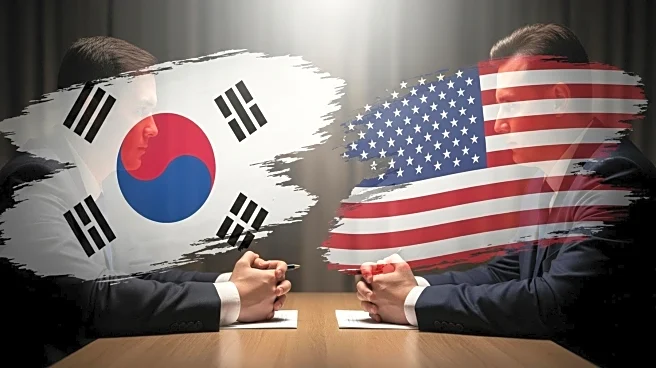What is the story about?
What's Happening?
Tariff negotiations between South Korea and the United States have reached a difficult deadlock, according to South Korea's presidential office. President Lee Jae Myung is reportedly determined not to impose financial losses on Korean firms as a result of these stalled talks. The impasse highlights ongoing challenges in trade relations between the two countries, as they navigate complex economic and political landscapes.
Why It's Important?
The stalled tariff talks could have significant implications for trade relations between South Korea and the United States. Prolonged negotiations may impact industries reliant on cross-border trade, potentially affecting supply chains and market access. The deadlock also underscores broader geopolitical tensions, as both countries seek to balance domestic economic interests with international trade commitments. The outcome of these talks could influence future trade policies and economic strategies.
What's Next?
As negotiations continue, both South Korea and the United States will likely explore alternative solutions to break the deadlock. Stakeholders, including businesses and trade associations, will be closely monitoring developments, as any resolution could have far-reaching effects on trade dynamics. The situation may also prompt diplomatic engagements to address underlying issues and facilitate progress in the talks.
Beyond the Headlines
The tariff negotiations reflect broader challenges in international trade, where economic interests often intersect with political considerations. The deadlock highlights the need for effective diplomatic strategies to navigate complex trade relationships and ensure mutually beneficial outcomes.














